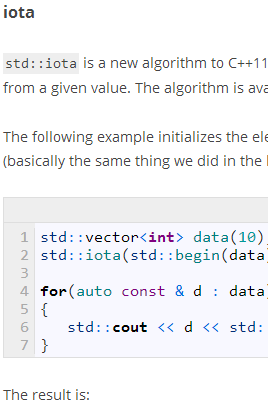Assigning algorithms in the C++ standard library -- codexpert

Assigning algorithms in the C++ Standard Library
From the article:
The C++ Standard Library provides several algorithms for assigning values to a range (such as a container or a C-array). ...

 From the desk of an author going by the name Pubby, a nice short article showing off "yield return" using Boost's coroutines library:
From the desk of an author going by the name Pubby, a nice short article showing off "yield return" using Boost's coroutines library: Scott Meyers' work on his new "Effective C++" book, tentatively titled Effective Modern C++, progresses with an updated draft item:
Scott Meyers' work on his new "Effective C++" book, tentatively titled Effective Modern C++, progresses with an updated draft item: New on Dr. Dobb's:
New on Dr. Dobb's:
 The STE||AR Group has released V0.9.8 of HPX -- A general purpose parallel C++ runtime system for applications of any scale.
The STE||AR Group has released V0.9.8 of HPX -- A general purpose parallel C++ runtime system for applications of any scale.